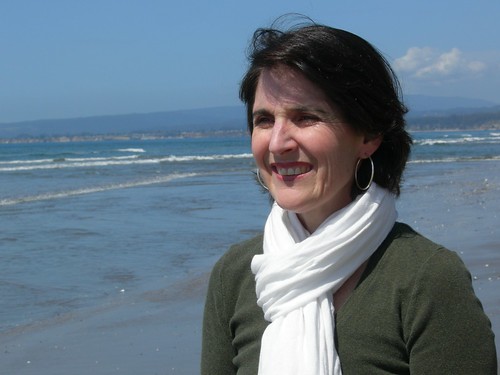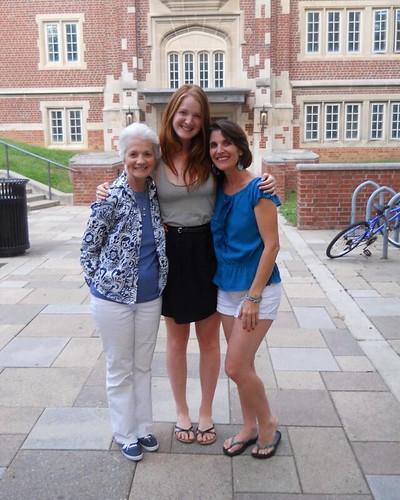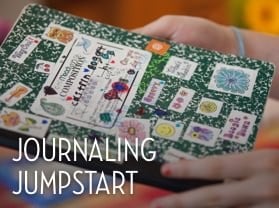
It’s taken a long time for my quieted, judged, mocked, misunderstood, ignored, reproved, overlooked, shamed voice to emerge…a wee bit. Hard to believe, I know, given how naturally I speak in front of a room, how easily I monopolize phone lines with detailed introspective comments to close friends. I ooze verbal confidence which hides my self-doubt.
Listening to inner wisdom is not the same as talking about insights. The process is somewhat similar to how writing must feel for lots of people. One of the hardest things about writing is the anxiety that Mistakes Will Be Made. That need to get it all down correctly on the “first go” has paralyzed the writing voices of many verbal people. I know that my writing voice isn’t hampered by bad punctuation or mistaken content or self-indulgent ranting.
But I have treated my inner wisdom differently. I was told for years that I can’t trust myself, that I needed an objective measure to avoid Making Big Mistakes. I worried: What if I’m wrong? What if I stake my life on my beliefs and it doesn’t work out?
But I should have asked: What if in the tiny, every day ways I ignore warning bells (emotional exhaustion, tedium, wrenching pain, loneliness, hopelessness, confusion, contradiction between logic and experience)? What then?
I applied “formats for living” to my unique life, trying to fill in the blanks according to Life’s Instructions. You know how you write an essay that must have a thesis, supporting paragraphs with points and particulars, proper evidence and proofs from reputable sources, and a resounding conclusion that will lead everyone to your conclusion, conclusively!? That’s how I’ve treated my life, much more than my writing. I’ve scripted my inner wisdom by supplying it a list of rules, outcomes, supreme authorities and source materials; then I told it to get busy voicing and concluding.
What I’ve needed, though, is to permit illegal thoughts, hunches, concerns, worries to percolate to the surface where they could sunbathe, get a little light on them so they wouldn’t be so pale.
For instance:
I let people bully me. I assumed if someone took the trouble to tell me my motives, they must know something about me I didn’t know about myself. Confusion and self-doubt would swoop in. Then I’d fight off the anxiety with defensiveness, but in the end, often capitulated to their vision of me.
Now, if someone tells me who I am or what I think, I stop them. If they don’t come from a place of curiosity, humility and kindness, the content is irrelevant to me.
To write my life with my inner voice means risking relationships, it means making mistakes (over-asserting a boundary, not creating a strong enough one, experimenting with my values, disregarding what someone else says matters, making something matter that doesn’t).
To freewrite with my inner voice requires quiet. Running without headphones, sitting on a bench over looking the river, turning off all the ambient sounds in my home (the humming computers, the X Box, the radio…).
To follow one’s “gut” (inner wisdom), you don’t need reasons to act. Reasons can be sorted out later (and sometimes delay action). Better to act on your inkling first because sometimes that’s what saves you from injury (emotional or otherwise!). Being “nice” is not a reason to ignore what you “hunch” inside.
I’ve bumbled along in this quest to be authentic, self-protecting and nurturing, other-oriented and generous. I’ve over-extended, I’ve miscalculated, I’ve used a machete when a scalpel would have been better. I’ve slaked my thirst with sugar drinks when I needed water. But that’s the nature of free voicing.
Wisdom comes in the revising phase… it’s not all at once, it’s not neat or tidy or even correct at the start. It’s most certainly not arrived at in a first draft. Inner voicing is a process that includes reacting instinctively without always understanding why, and then slowly gathering meaning along the way.
I tell our writing students all the time that “writing voice” simply means that their writing sounds like them. When I read what they write, whether they are joking around or crafting sophisticated academic papers, the ring of “who they are” comes through the writing. That’s writing voice.
It occurs to me that living by your inner wisdom may be similar: You’ll know that what you “voice within” is true to you when your life looks like who you are.
In homeschooling, it takes courage to trust your hunches for you and your family, to risk the days on a newly budding philosophy, to forge a path that is unfamiliar, to shed the familiar structures when they aren’t producing aliveness and learning.
Freewrite with your life—this week, one day, for an hour. See where it takes you.






















